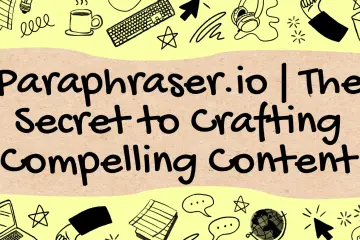Content Management systems are a dime a dozen. But just as one grain of sand is not the same under the microscope, there are big differences between the CMS. You have to look closely to spot them.
This is important because the choice of your system will have a long-term impact on your website. After all, a system change always involves a great deal of effort, which is why companies usually remain loyal to a content management system. So that you can make the right choice for you, we are happy to offer you assistance. Because with the right questions you can easily check whether the CMS meets your requirements…
What is a content management system?
A content management system is a software that can serve as the basis for building a website or other platforms. These systems offer a ready-made backend in which content can be created, edited, managed, and organized together. Although the basic structure is given, CMS offers a wide range of design options through extensions and individual programming.
They should therefore never be confused with website construction kits. As a basis, they also offer inexperienced users the opportunity to build their own websites relatively easily. However, content management systems only develop their full potential in the hands of professionals.
Overall, they have established themselves as the basis for modern websites. WordPress, TYPO3, and Contao are particularly popular in Germany. According to Statista, the former has a market share of over 60% worldwide. For shops, on the other hand, systems such as Shopware have proven themselves. The choice of CMS has a major impact on the way we can work together on the website.
6 questions to choose your content management system
What previous knowledge do you have?
Most systems today are designed to be as intuitive and convenient to use as possible. Nevertheless, before making your choice, you should ask yourself whether you have previous knowledge or whether it is necessary to use it as simply as possible. This involves creating content, i.e. editing, as well as managing and creating the website itself.
WordPress, for example, offers ready-made templates and a text editor that is familiar with classic EDP. This makes it easy to use, even for newbies. TYPO3, on the other hand, usually requires a somewhat deeper entry.
Regardless of specific systems, you should always consider beforehand what you can and want to do yourself. Are the creation and maintenance of the website outsourced to an agency? Then you should have the right CMS suggested to you. Do you want to look after the content yourself? Then you should actively participate in the decision to get a content management system that you can actually use.
Are there any special requirements for the CMS?
Every company is different and so website projects differ significantly from each other. You should therefore be clear beforehand whether there are any special requirements for your website from your side. Because as far as basic functionality goes, you’ll be fine with most CMS.
Specifically, such special requirements can e.g. B. the integration of an online shop. Perhaps there is also a special interest in the administration of rights and roles as well as collaborative work on the content or flexibility. You may also run an international company and need different language versions that meet international requirements.
All of these considerations should be included in the choice of the content management system. You can integrate much of it into most systems via extensions. But just because it works fundamentally doesn’t mean that it works in the best possible way. It is therefore often worthwhile for e.g. For example, particularly demanding projects are more likely to rely on the enterprise CMS TYPO3.
How secure is the system?
The good news first: WordPress, TYPO3, and Contao offer all options to make your website particularly secure. So you can’t go wrong there for that matter. However, you should consider in advance whether there are any special security requirements.
You have to know that the systems are constantly being further developed and tested. For example, TYPO3 has B. a large open-source community and its own security team that detects and closes security gaps. But Contao and WordPress are also constantly working on the maximum security of the product.
Furthermore, the system architecture, e.g. B. the distribution and securing of servers, has a role in the security of your website. You should take this into account in particular if you want to use a rather unknown CMS.
How fast is the CMS?
The speed of a website is not only important for users. As part of the Core Web Vitals, Pagespeed 2021 will also become a ranking factor in search engine optimization. Basically, it is difficult to compare the different systems. Because different factors flow into the speed of your website:
- Choice of CMS
- Hosting server
- Content
- Plugins
-
Basically, it is good if functions are already integrated into the standard and are not only added via plugins. This usually speeds up the site. But even the fastest content management system is of no use if your content consists of malformed images and the hosting server does not meet the requirements.
In terms of speed, the content management system is not the only decisive factor in the war. Rather, it is about setting up your entire infrastructure in a target-oriented manner, with the CMS being one point among many.
What future prospects does the Content Management system have?
The market is highly competitive and the big systems are doing everything they can to remain relevant. This plays a role in your decision because you want a CMS that you can use for as long as possible.
So before you decide, you should assess the future prospects of the system. Is it a completely new product that is fresh on the market? Or has the CMS been around for a long time but is hardly ever used? In both cases, caution is required. Security updates and bug fixes are necessary for your website to function in the long term. You can only operate your website securely if these are regularly guaranteed. It is not without reason that you also have to regularly carry out major updates to the next system version.
This is the case with content management systems such as TYPO3, Contao, and WordPress. You can therefore assume that you will also be well and securely positioned with these systems in the future.
What are the costs?
Of course, money also plays a role in the choice. Self-employed people have different ideas than an international company. In general, it can be said that there are hardly any costs for the content management system itself. The systems themselves are usually built on an open-source basis and are freely available for download.
However, when it comes to building and hosting as well as extensions and long-term support, we can you will incur higher costs. Depending on whether you z. For example, if you work with an agency for conception and creation, this may be specialized in a certain system. If you then want to use a different one, this in turn can lead to additional work.
Overall, however, this factor is negligible. Because at the end of the day, a website is a powerful marketing tool that is usually worth the money – if implemented well. Accordingly, you should not base your decision solely on the costs. However, if you work with a partner for your website, you should check carefully whether they have the necessary experience with the respective system. In this way, everyone involved can work satisfactorily and cost-effectively.
Summary: How to choose your CMS
- What prior knowledge do you already have?
- Are there any special requirements?
- How secure is the CMS?
- How fast does it work?
- What are the future prospects of the system?
- Which costs arise?
If you use these questions as a guide, you are already well on your way to finding the right basis for your website.








